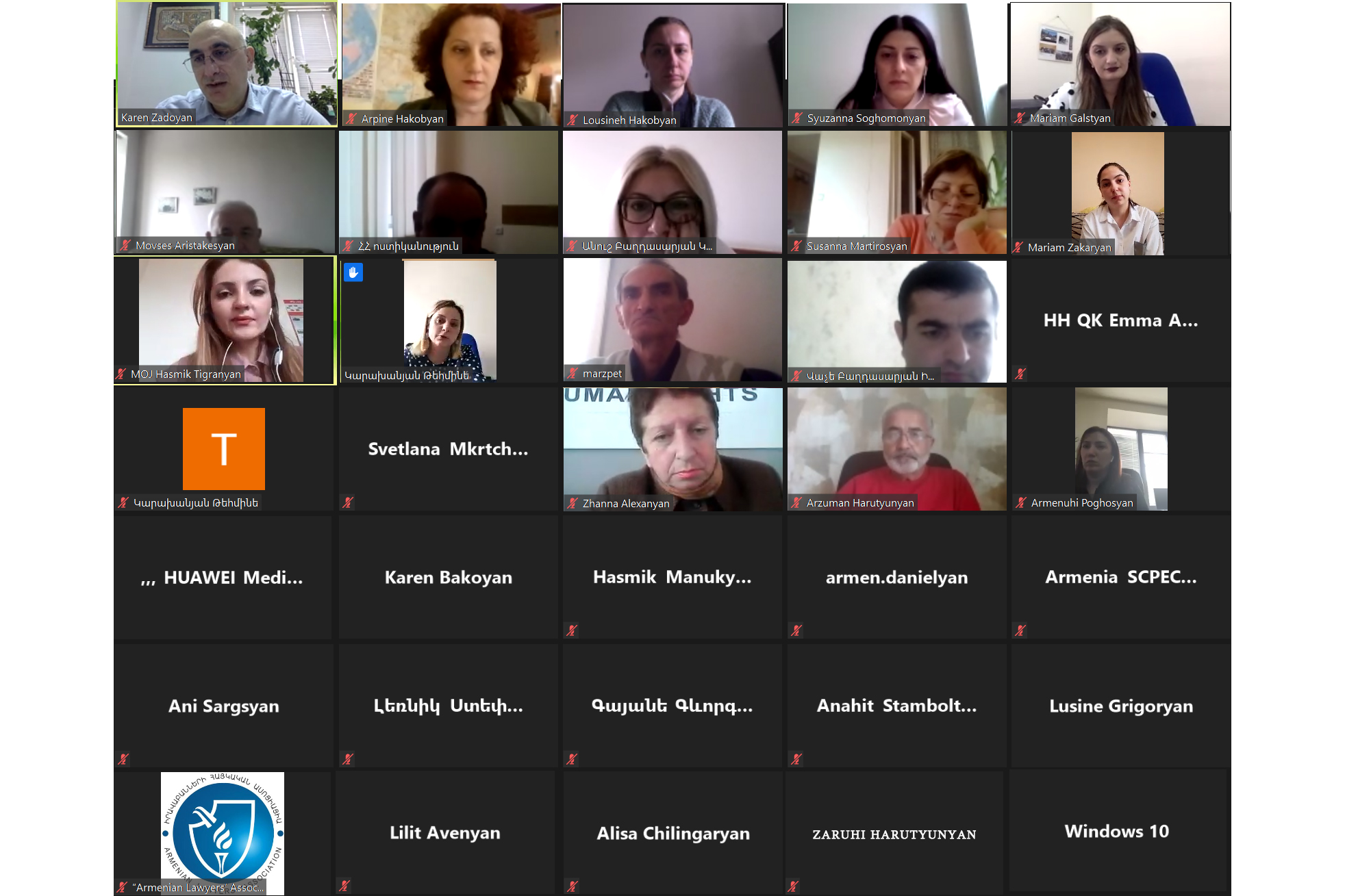
The Armenian Lawyers’ Association and the CSOs Anti-Corruption Coalition of Armenia, have jointly monitored the actions of the “Republic of Armenia Anti-Corruption Strategy and Its Implementation Action Plan for 2019-2022” that were planned for 2019-2020.
As a result, Monitoring Report of the “Republic of Armenia Anti-Corruption Strategy and Its Implementation Action Plan for 2019-2022” was developed.
Today, on 20 April, an online conference was held to discuss the report. Representatives of the state bodies, civil society organizations, lawyers and advocates attended the conference.
Mr. Karen Zadoyan, the President of the Armenian Lawyers’ Association made an opening speech at the conference. According to him, this was the unique strategy that had a great inclusion and was adopted by the efforts of both the civil society and state bodies. Karen Zadoyan mentioned that it was especially important that the strategy had two specific objectives: the creation of an anti-corruption institutional system and fixing of anti-corruption pillars (anti-corruption education, prevention, investigation of corruption cases (inevitability of punishment).
“Focusing all our attention on the main and specific issues of the anti-corruption strategy, we have not been so attentive in terms of actions as well as monitoring and evaluation. In carrying out this monitoring, we specify that there are many gaps in those issues. It can be said that the evaluation and monitoring system does not allow us to assess the real and qualitative results of anti-corruption issues and objectives, to measure the medium-term and long-term impact. This is very important, because the level of implementation of the actions is mainly assessed, without having quality standards,” the ALA President said speaking about the problems.
Ms Arpine Hakobyan, Chairman of the Governing Board of Directors of the CSOs Anti-Corruption Coalition of Armenia said that during the strategy development phase, the Coalition submitted about 113 proposals, 80% of which were included in the strategy. “Only joint efforts enable achieving results in the field of anti-corruption and it is very important that state bodies and CSOs work together,” she said.
Speaking about anti-corruption bodies, Ms Lusine Hakobyan, Coordinator of the National Platform of the Eastern Partnership Civil Society Forum, President of “Europe in Law Association” NGO, touched upon the issue of non-transparency and non-competition of the personnel appointment process. “It is a great guarantee for the elimination of corruption and even in the case of the Human Rights Defender, the global network of national human rights institutes envisages such requirements to exclude even those positions that have been considered discretionary positions for years in order to exclude political appointments,” Lusine Hakobyan said.
Ms Mariam Galstyan, Head of the Anti-Corruption Policy Development and Monitoring Department of the Ministry of Justice mentioned that the monitoring of the strategy was and still is the weakest link. “When we were conducting the assessment, we noticed that we have serious problems here and now we are planning changes in the strategy in order to have a more effective and efficient monitoring mechanism,” she said.
Ms Syuzanna Soghomonyan, Anti-Corruption Expert of the Armenian Lawyers’ Association, presented the Monitoring Report of the “Republic of Armenia Anti-Corruption Strategy and Its Implementation Action Plan for 2019-2022”
According to her, within the framework of the monitoring, the implementation of the strategy was monitored, in-depth expert interviews were conducted with the key bodies responsible for the actions envisaged by the action plan, focus group discussions were organized with interested state bodies, CSOs and experts, and other actions were conducted as well. One of the main issues raised is that in many cases, when we assess the level of performance of this or that action, it is formally assessed by the strategy and the indicators of the strategy as implemented. However, when we study the qualitative aspect, we notice that there are serious problems that have not been solved by the performed action. Unfortunately, there are a lot of such actions in the strategy. Among them, the lack of guarantees of the independence of the institutional system is especially great․ On the one hand, the Commission for the Prevention of Corruption and the Anti-Corruption Committee were established, and on the other hand, the selection of staff was made as a result of non-transparent and political agreements (In the case of the Committee, appointments have not yet been made, but legislative mechanisms allow for political influence in the process).
The main concern of CSOs was that in many processes their voices could not be heard: either the participation of the latter is not ensured or that participation is of a formal nature.
Summing up the event, Karen Zadoyan noted that it is necessary to completely review the strategy in a very short time, defining output level indicators both for the implementation of actions and their evaluation.
